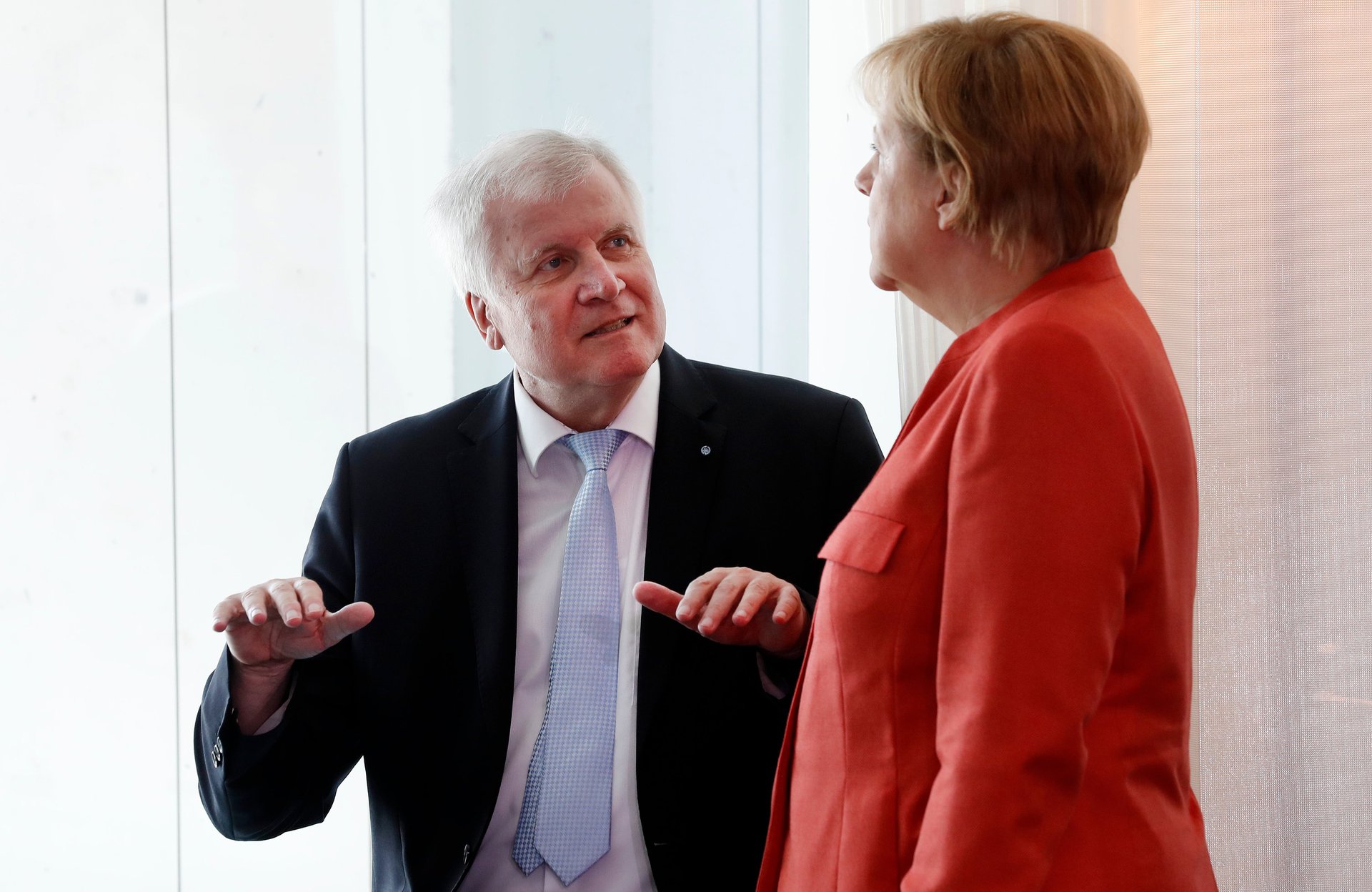Angela Merkel’s cap on refugees pleases her party but could hurt coalition talks
After an election that saw Angela Merkel’s Christian Democrats bleed around one million voters to the right-wing Alternative for Germany, the German chancellor has finally given in to demands from her sister party in Bavaria, the Christian Social Union, and agreed to set an upper limit to the annual amount of refugees allowed into the country.


After an election that saw Angela Merkel’s Christian Democrats bleed around one million voters to the right-wing Alternative for Germany, the German chancellor has finally given in to demands from her sister party in Bavaria, the Christian Social Union, and agreed to set an upper limit to the annual amount of refugees allowed into the country.
They have set the number at 200,000 per year—this purely applies to refugees, not to people from other European Union states or skilled workers from other countries looking for jobs.
The deal, reached late Sunday between Merkel and CSU leader Horst Seehofer, will go a long way to placating the CSU. Seehofer, who has been a harsh critic of Merkel’s refugee policy since 2015, has long demanded an upper limit. He blamed Merkel’s refugee policy for the Conservatives’ less-than-stellar performance in the September election.
Now Seehofer has got what he wanted—in a way: the wording of the agreement does not use the word “Obergrenze” (upper limit), instead describing the 200,000 as a limit that they want to ensure the number of refugees accepted doesn’t exceed.
Merkel’s compromise with her sister party has angered the Greens, Merkel’s potential new coalition partners; discussions between the CDU, the Greens and the Free Democrats are set to begin next week.
As well as being staunchly against limits, the Greens are also against other parts of the CDU-CSU deal, such as setting up asylum centers where all refugees have to remain until they are either allowed to stay or sent back home, and the addition of three more “safe” countries of origin to the list.
Green co-leader Cem Özdemir said it wouldn’t mean they couldn’t form a coalition, but said the refugee limit would not be allowed into any coalition agreement. Greens Party chairwoman Simone Peter said on Twitter that the careful wording didn’t mean it wasn’t in effect an upper limit: “This number is completely arbitrary, it has been set through ideology. We believe in a basic right to asylum.”
“Human rights know no upper limit, no one should be sent back to a situation where they are threatened with torture or inhumane treatment,” Pro Asyl head Günter Burkhardt said, describing the agreement between the CDU and CSU as “inhumane haggling.”
However, the new refugee cap can be changed if the situation demands it, for example if war were to break out. Also, the Geneva convention and the German constitution demands that those running from persecution and war have to be given asylum.